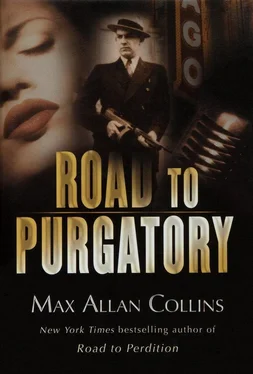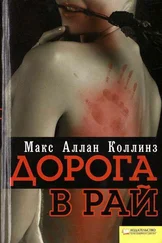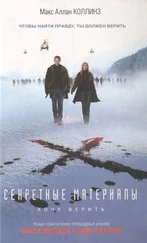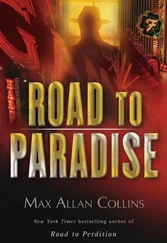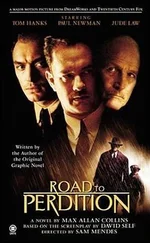“This I know... have I earned the right to ask a favor?”
Ricca nodded.
“As soon as possible, I would like to leave Chicago. My father... in DeKalb... is in the restaurant business. I spent years around that trade. A restaurant, a nightclub, perhaps something in show business would please me.”
Ricca nodded slowly. “Like your late capo, you prefer the legitimate. The whores, the juice, the gambling, narcotics, none of these things appeal to you.”
“They do not. I say this in respect.”
He sipped the espresso, then, conversationally, said, “You know, Michael, Nitti’s the only one who’ll beat this federal rap. We’ll be gone, many of us, perhaps as long as five years. While we’re away, Tony Accardo will hold my chair. I’ve recommended you to him.”
Not relishing these words, Michael nonetheless said, “Thank you, Mr. Ricca.”
The gash in Ricca’s face that was his mouth formed something that could be called, charitably, a smile.
“Michael, when I return, I’ll grant your request. We’ll send you to Vegas or possibly Hollywood... Despite this setback, we still have interests out there.”
“Thank you, Mr. Ricca.”
“Until then, here in Chicago, you serve Joe Batters.”
“I am honored.”
Ricca lifted a lecturing forefinger. “Now, Michael — do not mislead yourself. You can be in a passive part of our business and still be called upon. With your talents, from time to time — this will happen. This... will ... happen.”
“I know.”
Ricca, lighting a cigarette with a silver lighter, studied Michael. He drew on the cigarette, exhaled a wreath of gray-blue smoke, then said, “You need to live your life.”
“I... I’m not sure I understand, Mr. Ricca.”
Ricca snapped shut the lighter. “We will not speak of your parents... your real parents again... but I will say now that you must not let what happened to them stand in the way of your living a normal life. You’re an American hero, Michael — you deserve the best.”
“Thank you, sir.”
“Go out and find a good wife and raise little micks who’ll think they’re Sicilian — okay? And someday get yourself a mistress. You’ll need the outlet. Believe me.”
Michael nodded.
Ricca reached out and patted Michael’s folded hands. “We don’t bother each other’s families. When you’re made, we don’t fuck your wife, let alone kill her. Capeesh? ”
“Capeesh,” Michael said softly.
“Do what I tell you. Wife and family. House in the suburbs.” Ricca shrugged elaborately. “It’s the American dream, my son.”
And now Michael was next to Patsy Ann on a park bench. The sky was bleak and the air was cold, but he handed her the little black box, which she opened, and the two-karat diamond ring in the silver setting on the velvet bed sparkled so brilliantly that Patsy Ann saw nothing but brightness.
He helped her on with it and then she did that thing women do — outstretching her hand, as if making sure the diamond was big enough to be seen at a distance — and finally she hugged him and kissed him and kissed him and hugged him...
With her in his arms, he stared into her lovely blue eyes and said, “You don’t have to sell your soul for me, baby. I’m gonna work in strictly legit areas.”
She touched a forefinger to his mouth. “Loose lips sink ships,” she said.
And those same eyes told him that she would not ask him about his work, nor would she judge him for it; she loved him. No strings. No small print.
“All I ask is that you always love me,” she said, not smiling now, her voice trembling, “and our children. Promise me that — and that our children will be safe.”
He drew her closer. “I promise you, baby. These kiddies are gonna have a better life than I ever did.”
Kissing her again, tenderly, slowly, lingeringly, he did not tell her that keeping such a promise should not be difficult. Not when the standard was his life...
But he did promise himself he would protect her and their kids-to-be. They would have a happy and prosperous life, and nothing would touch them; he would not let it. If some small voice of reality spoke from the recesses of his mind, he batted it away — he had once thought he could never put at risk those he cared about; but he now knew he could not face a life without those he cared for around him.
And right now, this smart, painfully pretty college coed, who was foolish enough to care for him back, was the only person on earth he loved. Not the only person he cared for — but the only one he loved...
At Pasquale’s Spaghetti House, they showed his parents the ring, and told them of their decision, and the Satarianos were beside themselves with joy, fat old people bouncing like babies. Patsy Ann called her parents, who dropped everything and, with sister Betty in willing tow, came over to the restaurant, where they all sat at a big table and the two families, about to become one, had mountains of spaghetti, and plenty of vino, too.
Patsy Ann said that she had three good offers in the Chicago area for teaching jobs, and hoped Michael wouldn’t mind if they waited a while to start their family.
“You can support me forever, if you want,” Michael said, gesturing with a wine glass. “You’re a modern woman, I’m a modern man.”
He told her they would live in Chicago for a few years, but that he’d been promised a position out West, mostly likely in show business.
“Oh, Michael,” Patsy Ann said, clutching his hand with her newly diamond-adorned one. “It’s like a dream come true. Is it terrible to be so happy, when the world is at war?”
Papa S., across from them, lifted his wine glass and said, “Wars don’t last forever. And in the postwar world, everything will be possible.”
Patsy Ann’s burly, handsome father raised a glass and made a toast any Buick dealer in the USA might well have made: “To the American dream!”
Voices all around the table echoed: “To the American dream!”
Only Patsy Ann noticed that Michael hadn’t joined in. He was remembering Ricca using the same phrase: It’s the American dream ...
... my son .
He only prayed he would never wake up screaming from it.
Despite extensive speculation, supposition, and fabrication, this novel has a basis in history. Many historical figures appear under their own names, including John and Connor Looney (and their minions and contemporaries in early twentieth-century Rock Island, Illinois) and of course Frank Nitti and Al Capone (and their minions and contemporaries in mid-twentieth-century Chicago).
Michael O’Sullivan, Sr., is a fictional character grown out of several estranged lieutenants of ganglord John Looney. As with my original graphic novel, Road to Perdition (1998), I have taken the liberty of moving up the Looney activities a few years; and time compression has been used in both the Looney section and the two longer Nitti ones.
Eliot Ness did head up the wartime Federal Social Protection Division, and was concentrating on the Chicago area when Frank Nitti decided to cut back on prostitution. From these two obscure facts I have spun a central conflict of this novel. Similarly, my notion that Frank Nitti downplayed Al Capone’s mental incapacity to shore up his own power has some basis in reality.
Before I acknowledge my two stellar research associates, I must state that any errors here, historical, geographical, or otherwise, are my own.
On the Chicago Outfit sections, I was abetted by George Hagenauer, my longtime research assistant on the Nathan Heller historical detective novels. We drew upon research material that had pertained in particular to the first three Hellers — True Detective (1983), True Crime (1984), and The Million-Dollar Wound (1986), known collectively as The Frank Nitti Trilogy — specifically, photocopies of Nitti-era newspaper accounts. I have never lived in Chicago, whereas George was born and raised there, and spent much of his life in that great city; any sense of the town that I’ve achieved derives from George’s counsel and input. In addition, George gathered much of the Bataan material, and offered many good ideas on how to utilize and organize it.
Читать дальше
